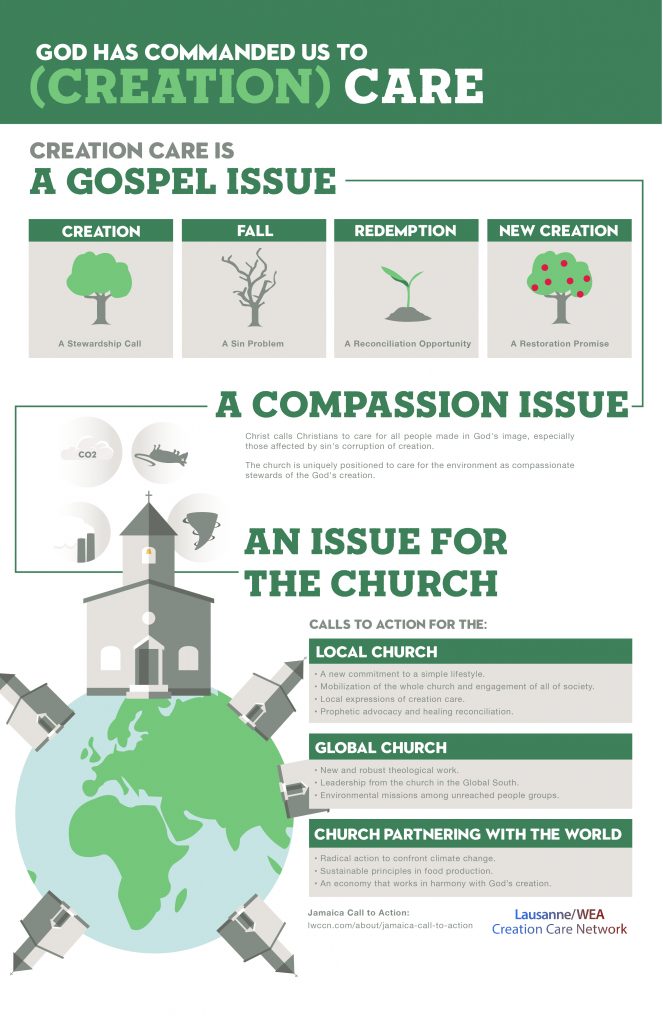
Forty years ago Billy Graham and John Stott brought together leaders in mission from all over the world. The aim was to help people connect with and encourage each other, share ideas and pioneer new ways of doing things together. The Lausanne Movement (named for the location of its first conference) was formed, which facilitates communication and produces resources to serve global mission.
Issue networks led by Lausanne Catalysts focus on specific missional opportunities or challenges. One of these networks focuses on creation care, which is part of the Lausanne Movement’s Cape Town Commitment:
We love the world of God’s creation. This love is…the logical outworking of our love for God by caring for what belongs to him…to proclaim the gospel that says ‘Jesus is Lord’ is to proclaim the gospel that includes the earth, since Christ’s Lordship is over all creation. Creation care is thus a gospel issue within the Lordship of Christ.
Such love for God’s creation demands that we repent of our part in the destruction, waste and pollution of the earth’s resources and our collusion in the toxic idolatry of consumerism…Integral mission means discerning, proclaiming, and living out, the biblical truth that the gospel is God’s good news, through the cross and resurrection of Jesus Christ, for individual persons, and for society, and for creation…
As one the Lausanne leaders featured in this video says, environmental destruction is the number one issue for many communities around the world, so becomes one of the main issues for ministry to those communities.
To serve the church in this aspect of its mission the Lausanne Creation Care Network has produced a range of resources, including the book Creation Care and the Gospel (edited by members of the Faraday Institute), and a short video-based course that is part of the Lausanne Global Classroom (produced by the Christian Conservation Charity A Rocha).
The Lausanne Creation Care Network is also a supporter of the the World Evangelical Alliance Sustainability Center.





